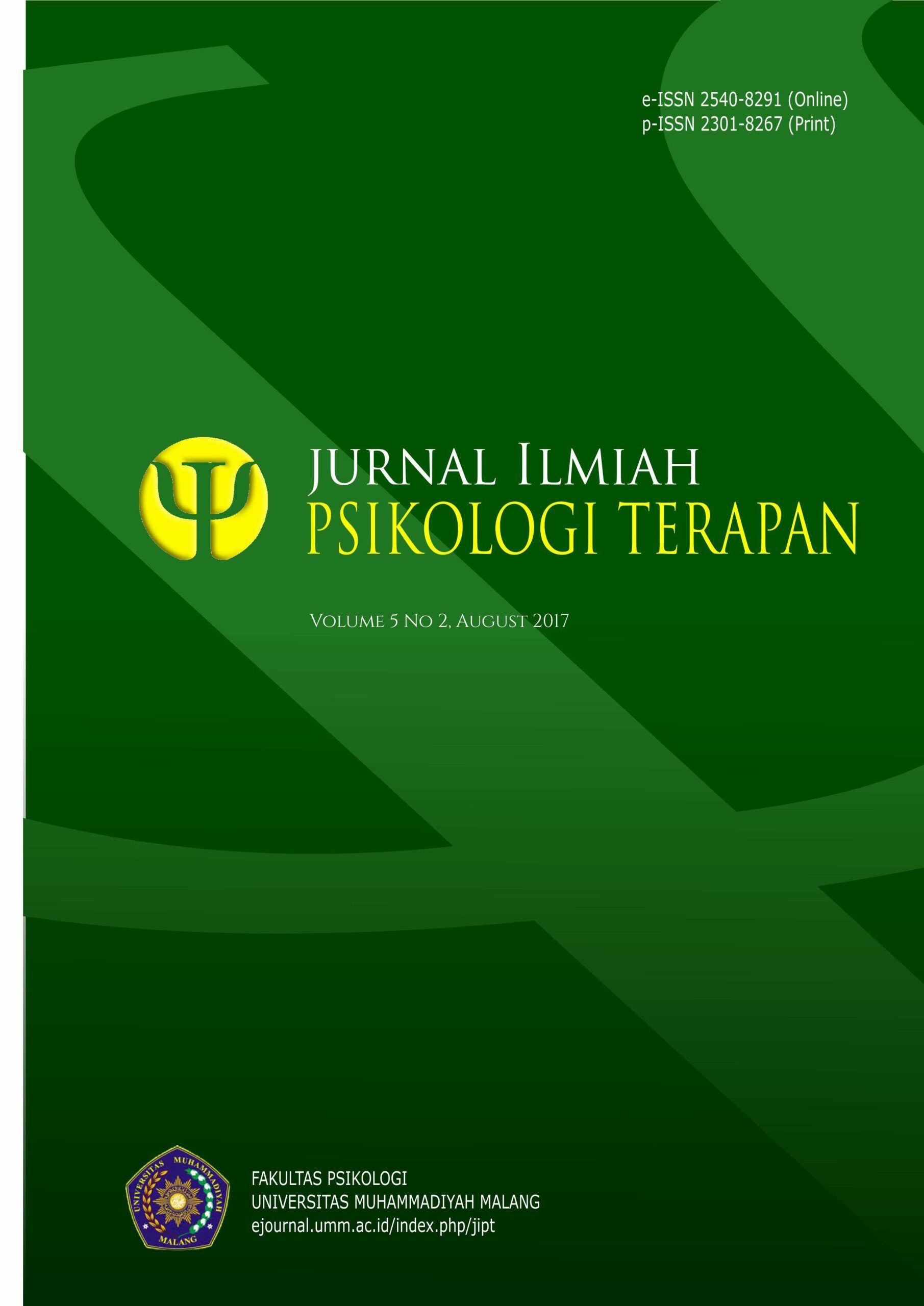Bano, A. (2014). Impact Of Meaning In Life On Psychological well being And Stress Among University Students. Existenzanalyse, 21–25.
Dariusz Krok. 2018. When is Meaning in Life Most Beneficial to Young People? Styles of Meaning in Life and Well-Being Among Late Adolescents. Institute of Family Sciences, Opole University, ul. Drzymały., Poland Journal of Adult Development (2018) 25:96–106.
GarcÃa-alandete, J., MartÃnez, E. R., Sellés, P., & Soucase, B. (2015). Meaning in Life and Psychological Well-Being in Spanish Emerging Adults. Acta Colombiana de PsicologÃa, 21(1), 196–205.
GarcÃa-Alandete. J (2018). Does Meaning in Life Predict Psychological Well-Being? An Analysis Using the Spanish Versions of the Purpose-In-Life Test and the Ryff’s Scales. The European Journal of Counselling Psychology, 2015, Vol. 3(2), 89–98, doi:10.5964/ejcop.v3i2.27.
Hadi Hashemi Razini, dan Maryam Ramshini. (2018). Investigating the Meaning of Life and Psychological Well-being, in Youth, Adults, and Elderly (A Comparative Study of Three Age Groups). Iranian Journal of Ageing. 2018; 13(2):182-197. doi.org/10.32598/sija.13.2.182
J. Ashok, Dr. P. Swati. (2015). Impact of Meaning in Life on Psychological well being among Street Children. International Journal of Science and Research (IJSR) ISSN (Online): 2319-7064 Index Copernicus Value (2015): 78.96 | Impact Factor (2015): 6.391
Jin-long Liang, Lan-xiang Peng, Si-jie Zhao2, Ho-tang Wu. (2017). Relationship among Workplace Spirituality, Meaning in Life, and Psychological Well-being. Universal Journal of Educational Research 5(6): 1008-1013, DOI: 10.13189/ujer.2017.050613
Maryam Hedayati, M.A. Mahmoud Khazaei. (2013). An Investigation of the relationship between depression, meaning in life and adult hope. Academic World Education and Research Center. Published by Elsevier Ltd. doi: 10.1016/j.sbspro.2013.12.753
Michael F. Steger and Patricia Frazier, (2015). Meaning in Life: One Link in the Chain From Religiousness to Well-Being. Journal of Counseling Psychology Copyright 2005 by the American Psychological Association. 2005, Vol. 52, No. 4, 574–582. DOI: 10.1037/0022-0167.52.4.574
Pourebrahim, T., Roya Rasouli. (2019). Meaning of Life and Psychological Well-Being during Adult, Older Adult and Oldest Old. Elderly Health Journal 2019; 5(1): 40-46. Shahid Sadoughi University of Medical Sciences, Yazd, Iran. DOI : 10.18502/ehj.v5i1.1198.
Psarra, E., & Kleftaras, G. (2013). Adaptation to physical disabilities: The role of meaning in life and depression. The European. Journal of Counselling Psychology, 2(1), 79-99. doi:10.5964/ejcop.v2i1.7
Abstract
Gratitude dan psychological well-being merupakan aspek emosi positif yang ada dalam individu. Individu yang memiliki rasa bersyukur karena mampu menyadari bahwa dirinya banyak menerima kebaikan, penghargaan baik dari Tuhan, orang lain dan lingkungan sekitarnya. Sedangkan individu yang memiliki psychological well-being ketika Ia mampu menerima dirinya, membentuk hubungan yang hangat, memiliki kemandirian, mengontrol lingkungan eksternal, memiliki arti dalam hidup serta merealisasikan potensi dirinya secara kontinyu. Tujuan penelitian ini adalah untuk mengetahui pengaruh Gratitude terhadap Psychological well being pada remaja. Penelitian menggunakan desain kuantitatif non eksperimen korelasional dua variabel. Teknik sampling yang digunakan dalam penelitian ini adalah menggunakan teknik cluster sampling. Teknik pengumpulan data dalam penelitian ini menggunakan skala Ryff’s psychological well-being scale dan The Gratitude Questionnaires Six Item Form (GQ-6). Analisa data menggunakan metode analisa korelasional. Hasil penelitian menunjukkan bahwa tidak ada hubungan yang signifikan antara gratitude dan psychological well-being pada remaja (r=0,012, p=0,865).
Kata kunci: Gratitude, psychological well-being, remaja.
Gratitude and psychological well being is a positive emotional aspect in every individual. People have gratitude on their self because they aware to get something good in every situation, a good appreciation from God and another people. Meanwhile, people who have psychological well being when they have self acceptance, positive relation to other people, have autonomy and mastering environment, have purpose in life and realizing their potential. The purpose of this study is to know the effect of gratitude towards psychological well being in adolescents. The research design used quantitative non-experimental study, correlating 2 variables. The sampling technique using cluster sampling. The data collected by using Ryff’s Psychological Well-Being Scale formed by Caroll D. Ryff (1989) and The Gratitude Questionnaires Six Item Form (GQ-6) be in the form of Likert Scale by McCullough (2002). The data analyzed by correlational analysis method. The result of this study show that there is no correlation between gratitude and psychological well-being in adolescent (r = 0,012; p=0,865).
Keywords: Gratitude, psychological well-being, adolescents
This work is licensed under a Creative Commons Attribution-NonCommercial-ShareAlike 4.0 International License.
The non-commercial use of the article is governed by the Creative Commons Attribution license as currently displayed on Creative Commons Attribution-NonCommercial-ShareAlike 4.0 International License.
JIP’s spirit is to disseminate articles published are as free as possible. Under the Creative Commons license, JIP permits users to copy, distribute, display, and perform the work for non-commercial purposes only. Users will also need to attribute authors and JIP on distributing works in the journal.
Please find the rights and licenses in Jurnal Ilmu Perilaku (JIP).
- License
The non-commercial use of the article will be governed by the Creative Commons Attribution license as currently displayed on Creative Commons Attribution-NonCommercial-ShareAlike 4.0 International License.
- Author’s Warranties
The author warrants that the article is original, written by stated author(s), has not been published before, contains no unlawful statements, does not infringe the rights of others, is subject to copyright that is vested exclusively in the author and free of any third party rights, and that any necessary written permissions to quote from other sources have been obtained by the author(s).
- User Rights
JIP’s spirit is to disseminate articles published are as free as possible. Under the Creative Commons license, JIP permits users to copy, distribute, display, and perform the work for non-commercial purposes only. Users will also need to attribute authors and JIP on distributing works in the journal.
- Rights of Authors
Authors retain the following rights:
- Copyright, and other proprietary rights relating to the article, such as patent rights,
- The right to use the substance of the article in future own works, including lectures and books,
- The right to reproduce the article for own purposes, provided the copies are not offered for sale,
- The right to self-archive the article.
- Co-Authorship
If the article was jointly prepared by other authors, the signatory of this form warrants that he/she has been authorized by all co-authors to sign this agreement on their behalf, and agrees to inform his/her co-authors of the terms of this agreement.
- Termination
This agreement can be terminated by the author or JIP upon two months’ notice where the other party has materially breached this agreement and failed to remedy such breach within a month of being given the terminating party’s notice requesting such breach to be remedied. No breach or violation of this agreement will cause this agreement or any license granted in it to terminate automatically or affect the definition of JIP.
- Royalties
This agreement entitles the author to no royalties or other fees. To such extent as legally permissible, the author waives his or her right to collect royalties relative to the article in respect of any use of the article by JIP or its sublicensee.
- Miscellaneous
JIP will publish the article (or have it published) in the journal if the article’s editorial process is successfully completed and JIP or its sublicensee has become obligated to have the article published. JIP may conform the article to a style of punctuation, spelling, capitalization, referencing and usage that it deems appropriate. The author acknowledges that the article may be published so that it will be publicly accessible and such access will be free of charge for the readers.
Abstract
The research used is quantitative. This study aims to examine the relationship between
forgiveness and gratitude with psychological well-being of adolescents living in
orphanage “X” Bekasi. Subjects totaled 103 adolescents. Techniques for retrieving data
using simple random sampling. Data analysis using bivariate correlation showed that
there was a positive relationship between forgiveness and psychological well-being with r
= 0.338 and p = 0,000 < p = 0.05. There is a positive relationship between gratitude and
psychological well-being with r = 0.505 and p = 0,000 <p = 0.05. Data analysis using
multivariate correlation regression showed that there is a significant positive relationship
between forgiveness and gratitude with psychological well-being with R = 0.521 with p =
0,000 < p = 0.05 and known coefficient of determination R Square of 0.272. Effective
donations given forgiveness and gratitude to psychological well-being amounted to
27.2%, while 72.8% were influenced by other factors not included in this study, including
otonomy, environmental mastery, purpose in life, and personal growth
PSYCHOLOGICAL WELL-BEING PADA REMAJA PANTI ASUHAN DI KOTA BANDA ACEH
Abstract
Life in the orphanage can affect adolescents’s living conditions, such as psychological well-being. Psychological well-being is affected by many factors, there are life experience,age, social support, religiosity and gender. The sampling technique used was purposive sampling. The participants were 74 adolescents (337males and 37 females), with aged range between 14-18 years who lived at the orphanages in Banda Aceh city. The data collected by using Ryff’s Psychological well-being Scale revisited with coefficient realibility 0,935. The study showed there was adoloscents of orphanages with high category psychological well-being (97,3%).The results of data analysis used Independent Sample T-Test with significant value (Ï) = 0,036 (Ï < 0,05) and corelation dimension of psychological well-being used Pearson. The study showed that there was difference psychological well-being between males and females and then six dimension of psychological well-being contribute for psychological well-being’s adoloscent of orphanages in Banda Aceh city



